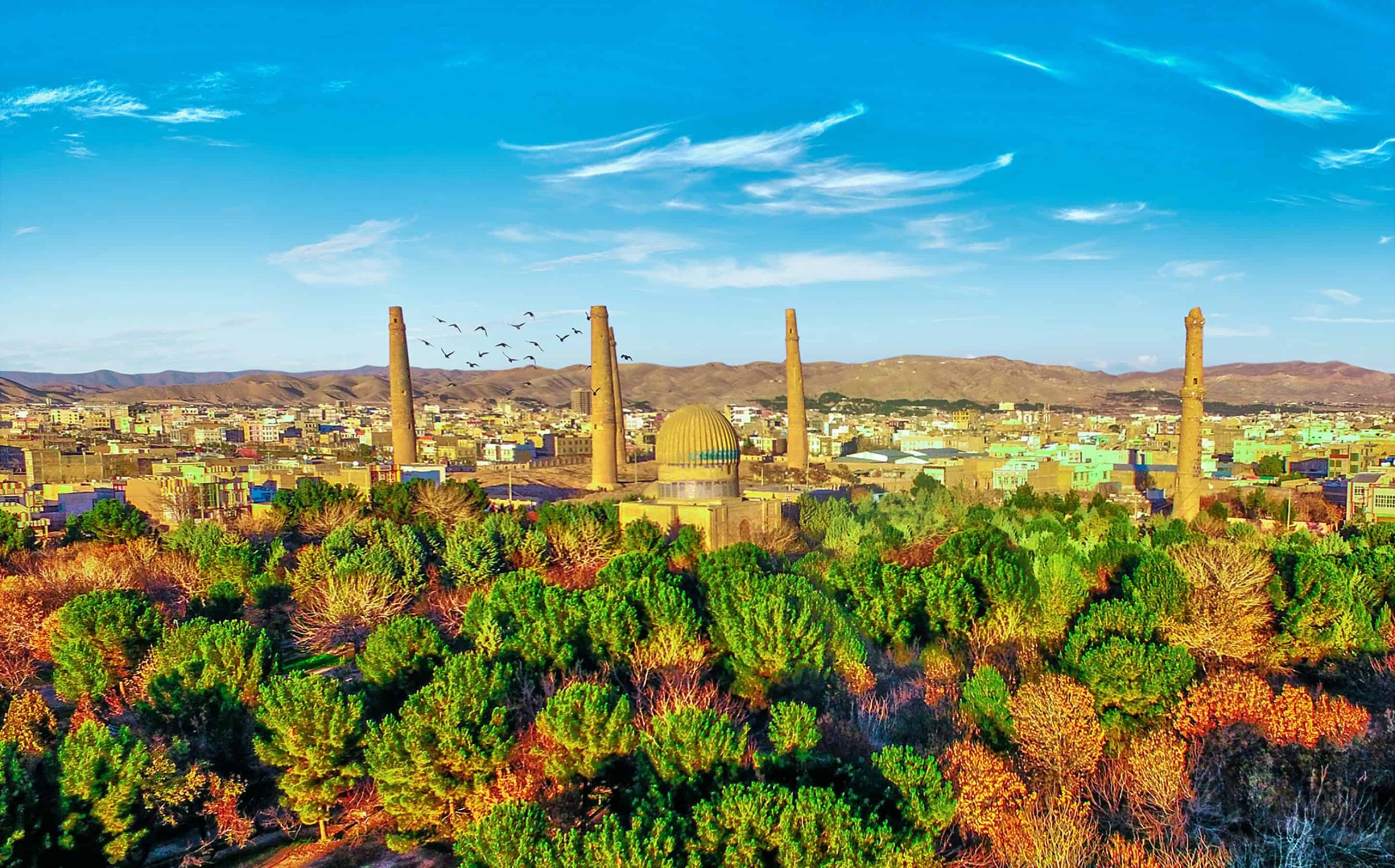What the Taliban’s economic policy should be | Islamic Finance Solutions – IslamicFinanceGuru

8 min read
Published:
Updated:
IW
IFG Staff Writers
Political upheaval has thrust Afghanistan into the spotlight. After the US withdrew the remainder of their troops and the Afghan government collapsed, the Taliban have swooped in and taken control. However with an economic crisis looming, the Taliban need to rapidly prove themselves as competent governors. In this article we will:
- assess the current economic situation in Afghanistan
- look at how the Taliban have historically made money
- suggest areas of focus
- provide potential Islamic finance solutions that the Taliban can take.
1. What is the current economic situation?
Covid, droughts and the recent political turmoil has contributed to a dire economic climate. Banks are closed and many government offices are empty[1]. The Taliban’s rise has led the local afghani currency to depreciate against the dollar affecting food prices with further inflation likely to follow. With banks and remittance providers such as Western Union closed, citizens are struggling to get hold of cash[2].
The central bank will have a key role to play in providing liquidity. However this will be difficult given that a staggering 75% of the government’s budget came from foreign aid[3]. Given the reluctance of most countries to give aid to the Taliban, this is a huge problem. The IMF and Germany have both already announced suspension of hundreds of millions of dollars in incoming aid. The situation hasn’t been helped by the US freezing $9bn worth of Afghanistan’s foreign reserves2.
The new administration will also have to address at some point the overreliance on farming as a source of income. Farming forms part of the income of 60% of households according to the World Bank. Going forward, the private sector will have to be developed and diversified to include more commercial activities if Afghanistan is to be prosperous in the long run[4].
2. How the Taliban have historically made money
Let’s take a look at the various ways the Taliban have reportedly made money in the past[5].
Taxes
The primary source of income according to the Overseas Development Institute is the taxation of legal goods, in particular levies on fuel and transit goods[6]. Their control over trade routes has allowed the Taliban to benefit from the trade of everyday consumer goods. Other areas of commerce taxed includes development projects, highway charges, harvest taxes and telecommunications.
Mining
Afghanistan’s rich mineral reserves have long been documented. Ranging from iron ore, copper, gold zinc and rare earth minerals, some of this treasure trove has been capitalised on by the Taliban. They have collected taxes from both small-scale and large mining operations in the country in areas under their control.
Donations
Private and institutional donors have been covertly supported the Taliban with much of it rumoured to come from the Gulf countries.
Illicit activity
Opium production in Afghanistan is big business where it is estimated that it has been responsible for 84% of recent global opium production between 2015 and 2020. The Taliban have allegedly benefited from this activity through taxation of all levels of the supply chain, from production to transportation.
In the last few weeks the Taliban have asserted that “Afghanistan will from now on be a narcotics-free country but it needs international assistance”6.
3. Areas to prioritize
Education
Nearly 4 million children are out-of-school in Afghanistan. Heavy investment is therefore required to plug this gap. In particular investing in teachers (particularly female teachers) and the surrounding infrastructure including transportation links and classroom resources[7].
It’s not just the young that require support, with traditional income sources such as farming increasingly being affected by the impacts of climate change. The world is also moving towards more highly skilled work, particularly with the advent of the digital economy. More on that later.
Education is important in improving the quality of life (particularly in healthcare and nutrition) and building the infrastructure required to build a sustainable and thriving economy that provides opportunity for all.
Digital economy
The digital economy is essentially all business conducted through markets based on the internet. Digital technologies can unlock rapid economic growth by providing access to digital markets, boosting productivity by leveraging technology and helping existing projects to scale.
The digital economy can be a great vehicle to facilitate job creation and economic growth for Afghanistan and would be a key component of any strategy for economic prosperity. In order to achieve this, investment needs to be made into the surrounding infrastructure such as reliable internet access as well as education in key online skills such as coding, product design, marketing and English.
This is an incredibly cost-effective way for the Taliban to reduce unemployment as it allows individuals to get jobs and work with relatively little of the wider infrastructure cost a traditional business needs.
Explore cryptocurrency alternatives
The closure of banks, remittance firms and the freezing of international reserves by the US have led to a liquidity crisis. One possible solution would be to tap into the growing movement of cryptocurrency.
Take bitcoin – the most established cryptocurrency. It’s a decentralised digital currency that functions as a store of value and a potential means of payment without the need for intermediaries such as banks or payment firms. The main bitcoin network however has a scalability problem that makes it unfeasible for current levels of everyday transactions. In response, innovations such as Strike’s lightning network payment app have come to the fore offering near-instant, low-fee transactions in a simple user-friendly interface[8].
Many Afghans have already adopted bitcoin and other cryptos with Afghanistan rising to 20th out of 154 countries in the global crypto adoption index[9]. If the Taliban embraced crypto, they could reduce the Afghanistan’s reliance on the dollar, give themselves greater economic flexibility and allow for crucial remittance payments to start flowing through again.
Longer term, becoming a country that embraces crypto technology early could pay dividends if crypto becomes the dominant financial layer through which the world ultimately operates. In part this will also be because it will mean that there is a deep in-house expertise around the topic that other countries would lack.
Encourage external investment
The Taliban shouldn’t be inward looking but should seek to work with external investors who can add genuine value to Afghanistan. Take Pakistan’s port city of Gwadar. In 2015 Pakistan partnered with China to develop a major seaport and invest in a combination of transport and energy projects. The aim was to leverage external expertise and investment to create jobs and boost the economy[10]. The project has its critics, but the positives are there and can be something the Taliban learns from.
A good candidate for investment would be the minerals reserves that Afghanistan is sitting on which so far has not been fully tapped into. Among the minerals there is lithium which is going to be crucial in the clean energy revolution required to combat climate change. However, extracting rare earth metals such as lithium requires greater investment and technical know-how than the likes of gold, iron and copper[11]. External investment and expertise is sorely needed in this space.
When making such deals the Taliban should ensure that the local population is involved and engaged throughout the process to minimise potential disruption and dissent. The Taliban should also ensure that it secures real value in the deal that doesn’t mean that the other country or company ends up taking the lion’s share of the profits.
Focus on tackling climate change
Climate change has wreaked havoc on Afghanistan over the last few decades, with multiple droughts and food shortage crises, including one that is ongoing. This is driving farmers to turn to crops such as opium that are more resilient to a low-water environment.
The Taliban really has its work cut out on this one but it is important to spend heavily to upskill farmers so that they move away from ancient farming techniques and learn how to grow crops using modern techniques that require far less water.
This particular problem is not one the Taliban will solve on its own – and nor should it. Climate change has in large part been caused by more industrialised nations and the Taliban should look to secure funding from such countries to help it tackle climate-related challenges.
4. Potential Islamic finance solutions
Embrace Islamic Banking
One of the steps the Taliban can take is to embrace Islamic banking. Islamic finance expert Mufti Taqi Usmani has offered his assistance. His credibility and connections could bring along support from institutions in Pakistan and other countries bringing in much needed investment. There are also already training links between Afghan bankers and Pakistan’s National Institute of Banking and Finance which can be used to provide the requisite training[12].
Issue Sukuks, Use Asset Financing
When governments and institutions require money, they often use bonds to do so. However these bonds are interest-based and therefore impermissible. Sukuks are a sharia-compliant alternative where holders receive revenue from the underlying assets. For more information on Sukuk, check out our deep dive here.
To raise money, the Taliban could issue sukuks against some of their assets. An obvious candidate would be their extensive mining reserves and operations as discussed earlier. This could give a much needed cash injection in the absence of other fundraising options.
Use the Waqf structure to attract strategic donations
Awqaf (plural of Waqf) are Islamic endowments used for charitable or religious purposes. The idea being instead of a one-off donation, you treat the donation as an investment with the returns going to further support the charitable cause. This allows for more sustainable development and can be used for the likes of schools, hospitals or even building wells[13]. Using the waqf structure could be a smart way to attract donations that can have a long lasting impact. You can read more about how to donate with impact and longevity in our approach to charity whitepaper published last year.
Promote microloans
We recently did an article on microloans and how they could be used in a halal manner. In a nutshell, microloans are small loans for impoverished borrowers that otherwise can’t get normal loans. Given the economic situation at the moment, this could be a great way to help citizens get back on their feet. Pakistani-based Akhuwat is a great example of one such provider that gives microloans for business, education, health, marriage, and emergency support needs[14].
Conclusion
In summary, urgent action is required by the Taliban to address the current economic crisis. There is also a valuable opportunity to build better this time around which, God willing, leads to a self-sustaining and flourishing Afghanistan that can in time go from being a developing country to a developed country.
[1] https://www.reuters.com/world/asia-pacific/rising-prices-shuttered-banks-add-misery-kabul-2021-08-22/
[2] https://www.ft.com/content/6395d167-3175-4332-8329-ae1478c616ca
[3] https://www.aljazeera.com/economy/2021/8/19/what-will-happen-to-afghanistans-economy-under-taliban-rule
[4] https://www.bbc.co.uk/news/business-58235185
[5] https://theconversation.com/the-taliban-are-megarich-heres-where-they-get-the-money-they-use-to-wage-war-in-afghanistan-147411
[6] https://www.ft.com/content/25b48967-2d8c-4acd-8699-e0cbdf164cb8
[7] https://kabulnow.af/2021/04/afghan-education-system-struggles-to-overcome-hindering-challenges/
[8] https://www.coindesk.com/tech/2021/03/31/strike-launches-bitcoin-lightning-payment-app-in-el-salvador-full-eu-support-is-next/
[9] https://www.independent.co.uk/life-style/gadgets-and-tech/bitcoin-afghanistan-crypto-taliban-economy-b1907180.html
[10] https://www.bbc.co.uk/news/world-asia-32400091
[11] https://edition.cnn.com/2021/08/18/business/afghanistan-lithium-rare-earths-mining/index.html
[12] https://www.samaa.tv/news/2021/08/will-taliban-replicate-pakistans-islamic-banking-experience/
[13] https://www.nwf.org.uk/
[14] https://akhuwat.org.pk/akhuwat-islamic-microfinance/




